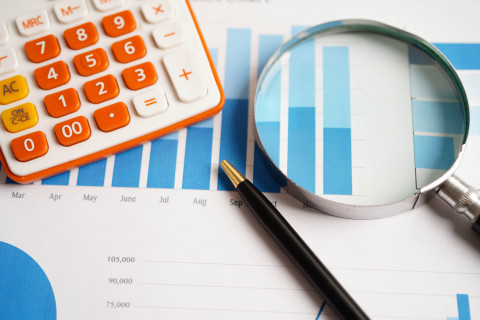
How Being an Actuary Looks Different Now
While studying actuarial science in college, I had a clear career path. I would graduate with a degree, get a good job and continue to take the actuarial examinations while working full time at a professional office every day.
What wasn’t part of that path? A global pandemic that would cancel exams, cause me to work from home, and create uncertainty that might affect my job—for years to come. My inclination is that many young actuaries and young professionals feel and have felt much that same.
Joe Herbers, managing principal of Pinnacle Actuarial Resources, has over 35 years of actuarial experience. He has seen major industry changes from asbestos and environmental claims liabilities to the emergence of claims-made policies. He has witnessed the advent of CAT models and the nascence of construction defect claims. For decades, he has seen new problems emerge and the creative solutions that have followed.
I sat down with Joe to discuss his perspectives on COVID-19 and how the pandemic may affect younger, current and future actuaries and those others working in today’s insurance industry.
Q. Besides having to work from home, what have been the biggest changes to practicing as an actuary during the COVID-19 pandemic?
A. Lack of personal interaction has been, in my view, one of the more challenging aspects. So much more of personal interaction is now being done via Zoom calls instead of face-to-face. That means not shaking someone’s hand or looking them in the eye. On the positive side, you can see peoples' faces on conference calls and we are putting faces to voices. And, in meetings now you can tell if someone is not paying attention or working on other things! But for me it has been a lack of personal interaction.
Q. Many people outside of the insurance industry ask me what markets will change the most as a result of the pandemic. I often answer using the example of distribution centers and shipping companies, which have seen large increases in claims due to increased online shopping. Restaurants, on the other hand, might see a large decrease in claims due to less people dining in. What markets do you think will change the most because of COVID-19?
A. I think retail, entertainment and hospitality are going to be the most affected industries. By hospitality, I mean transportation, hotels, rental cars and restaurants. I heard a report, not sure if it was true, but upwards of half of the restaurants in New York City may face closure. We are also hearing anecdotes about an exodus of businesses and people from the major metropolitan areas because, if COVID-19 has taught us anything, it’s that people can work from home and do it very effectively.
That will have all kinds of implications. It means people won’t be going out to eat as much. They won’t be going to stores or shops or bodegas. Commuters will not be using transportation as frequently because of travel restrictions.
We have already seen a beneficial impact to personal (and to a lesser extent, commercial) auto due to exposure and traffic density going down. Could we see an impact on workers’ compensation because people are working more frequently from home? If that paradigm continues, we would expect a systematic reduction in the frequency of claims. So I would say commercial BOP, personal auto and commercial auto will see the biggest effect.
Generally, it will be interesting to see how the industry is going to handle this shift in exposure more towards the home. When Uber and Lyft came on to the scene, auto carriers told customers when driving for these companies their personal auto does not apply. I expect to see more and more of that for homeowners’ exposure as there are some pretty strict exclusions in most policies in regard to business pursuits out of the home. The industry will have to come up with some new products to address that.
Q. As someone taking actuarial exams, I am personally invested in the following: How long until exam-takers can expect questions on pandemic insurance?
A. Current events have always been a big part of the exam process. The Casualty Actuarial Society (CAS) is always trying to test a student’s ability to assimilate information that they have accumulated over the years, sometimes to new or unique problems. I would expect you will see questions as early as next year.
One question may be, for example, related to pricing pandemic coverage. I know shortly after the September 11 attacks, regulators were very keen on an appointed actuary making disclosures about the impact of terrorist attacks, whether those attacks were only one or two separate occurrences, and how the concentration of property and workers compensation exposure was being handled from a risk management perspective. This pandemic, while very serious and very unique, is categorized as a “black swan” type event (i.e., an unpredictable event with severe consequences). But our industry has dealt with black swan events in the past and more will come in the future. There is always something around the corner, be it flood, pandemic, wildfires or a major earthquake that has not been seen before.
Q. What do you think will be the lasting effects COVID-19 will have on the actuarial profession? For example, what do you think it will look like in 20 years?
A. One of the benefits of being in this profession is that we are constantly trying to quantify the impact of uncertainty. That is never going to go away. Uncertainty will always be with us in different forms, shapes and sizes. Uncertainty is analogous to risk in my view and just a part of our lives. The actuarial profession will adapt and forge forward with new and innovative ways to deal with it.
Perhaps the biggest challenge right now is dealing with the increased awareness of systematic racism and it’s an issue on the front burner of most every organization. Consumer groups are criticizing the insurance industry, suggesting racism and unintentional biases in rating plans. This issue is very important, but also relevant because of uncertainty. Even risk classification itself (a cornerstone of our business) is coming under attack. Actuaries must lead those discussions because we are experts at dealing with uncertainty.
So what is our job going to look like in twenty years? Very similar, because we will continue to deal with uncertainty, despite the fact the uncertainty will be different. When I started in the industry, there were no CAT models. There was no thought of terrorism insurance (TRIA). The industry will continue to evolve and adapt to the world we live in.
Q. What advice would you give to actuaries working to understand the impact of COVID-19-- based on your historical experience?
A. I would reiterate the importance of uncertainty. But I also say that nothing is forever. Let’s use 9/11 as an example as a time managing a very significant problem—and a major shock to the system. The actuarial profession will adapt. So will the general public, the insurance industry and other structures of our society including the economy, law enforcement or federal government response.
It’s all going to evolve. In my mind, COVID-19 will come and eventually, it will go. When we get back to our new normal, whenever that is, there will be new challenges that will come our way.
Consider the inevitability of a significant earthquake occurring somewhere in North America. We don’t know when that next one will be but we’ll face the challenges of “what happens when this one is over.” Similarly, we will get past COVID-19, but something new will come along. We will look back at lessons learned as a result of this pandemic and be more and better prepared to deal with the next one like it.



